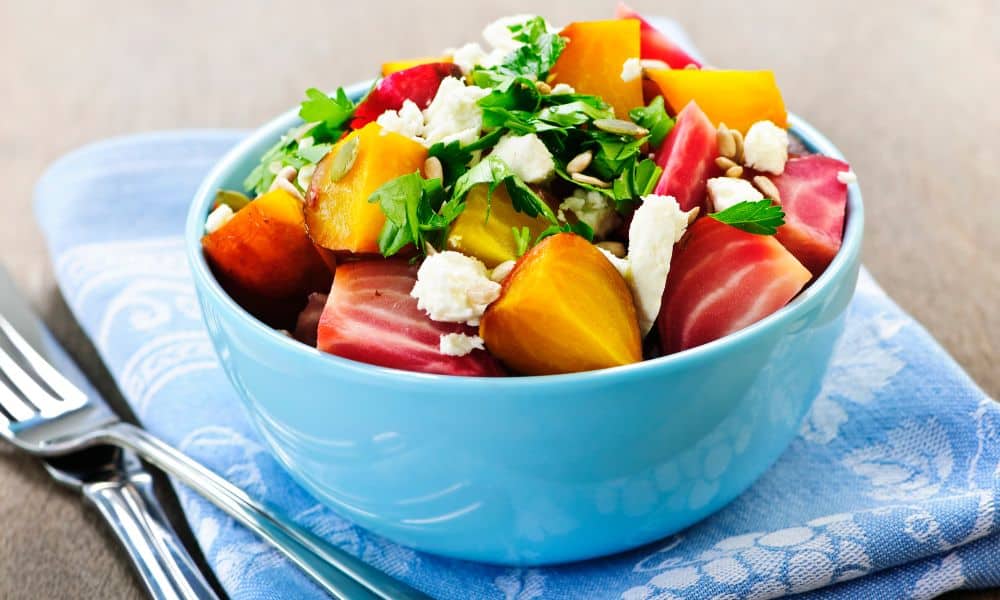When it comes to optimal health, some foods stand out for their diverse nutrient profile—providing a powerful mix of protein, healthy fats, fiber, essential vitamins, minerals, and antioxidants. These foods fuel your body, support longevity, and enhance overall well-being.
Below, we rank the foods with the best nutritional profile based on nutrient diversity, density, and overall health benefits.
What Makes a Food Nutrient-Dense?
A nutrient-dense food is one that packs a high amount of essential nutrients per calorie. The best foods provide:
- High-quality protein for muscle repair and metabolism
- Healthy fats for brain function and hormone regulation
- Complex carbohydrates and fiber for sustained energy and digestion
- Vitamins and minerals for immune function and cellular health
- Antioxidants to fight oxidative stress and inflammation
Now, let’s explore the top nutrient-dense foods that check all these boxes.
Top 10 Foods with the Best Nutritional Profile
1. Salmon
- Protein: 25g per 3 oz
- Healthy fats: Rich in omega-3s (EPA and DHA)
- Key nutrients: Vitamin D, B12, selenium, iodine
- Antioxidants: Astaxanthin, which fights inflammation
- Why it’s great: Salmon provides a perfect balance of protein, healthy fats, and essential micronutrients for brain and heart health.
2. Eggs
- Protein: 6g per large egg
- Healthy fats: Monounsaturated and saturated fats
- Key nutrients: Choline, B vitamins, vitamin D, iron
- Antioxidants: Lutein and zeaxanthin, which support eye health
- Why it’s great: Whole eggs contain every essential amino acid plus brain-boosting choline and powerful antioxidants.
3. Spinach
- Protein: 3g per 100g
- Carbs and fiber: 4g total, 2g fiber
- Key nutrients: Iron, calcium, magnesium, vitamin K
- Antioxidants: Beta-carotene, lutein, quercetin
- Why it’s great: Spinach is one of the most nutrient-dense greens, packed with essential minerals and antioxidants for overall health.
4. Blueberries
- Protein: 1g per cup
- Carbs and fiber: 21g total, 4g fiber
- Key nutrients: Vitamin C, vitamin K, manganese
- Antioxidants: Anthocyanins, which are anti-inflammatory and promote heart health
- Why it’s great: Blueberries have one of the highest antioxidant scores of any food, protecting against oxidative stress and aging.
5. Liver (Beef or Chicken)
- Protein: 27g per 3 oz
- Healthy fats: Low in fat but high in essential fatty acids
- Key nutrients: Iron, vitamin A, B12, folate, zinc
- Antioxidants: Coenzyme Q10, which boosts energy
- Why it’s great: Gram for gram, liver contains more essential vitamins than any other food, making it one of the best choices for nutrient replenishment.
6. Quinoa
- Protein: 8g per cup (cooked)
- Carbs and fiber: 39g total, 5g fiber
- Healthy fats: Small amounts of monounsaturated fats
- Key nutrients: Magnesium, iron, zinc, B vitamins
- Antioxidants: Quercetin and kaempferol, which are anti-inflammatory
- Why it’s great: Quinoa is a complete protein source containing all nine essential amino acids and a rich source of minerals.
7. Greek Yogurt (Non-Fat or Whole Milk)
- Protein: 20g per cup
- Healthy fats: Varies (choose full-fat for added healthy fats)
- Key nutrients: Calcium, B12, probiotics
- Antioxidants: None, but supports gut health
- Why it’s great: Packed with gut-friendly probiotics, protein, and calcium, Greek yogurt supports digestion and muscle growth.
8. Sweet Potatoes
- Protein: 2g per medium potato
- Carbs and fiber: 26g total, 4g fiber
- Healthy fats: Negligible
- Key nutrients: Vitamin A (beta-carotene), vitamin C, potassium
- Antioxidants: Beta-carotene, which boosts immune health
- Why it’s great: Slow-digesting complex carbs combined with powerful antioxidants make sweet potatoes one of the best carb sources.
9. Almonds
- Protein: 6g per ounce
- Healthy fats: Monounsaturated and omega-6 fatty acids
- Carbs and fiber: 6g total, 4g fiber
- Key nutrients: Vitamin E, magnesium, manganese
- Antioxidants: Polyphenols, which protect heart health
- Why it’s great: Almonds provide a great mix of protein, fiber, and healthy fats, making them an excellent snack for energy and heart health.
10. Dark Chocolate (85%+ Cocoa)
- Protein: 2g per ounce
- Healthy fats: Monounsaturated fats
- Carbs and fiber: 12g total, 3g fiber
- Key nutrients: Magnesium, iron, copper
- Antioxidants: Flavonoids and polyphenols, which reduce inflammation
- Why it’s great: Dark chocolate is one of the richest sources of antioxidants and provides cardiovascular and cognitive benefits.
How to Include These Superfoods in Your Diet
- Prioritize protein sources like salmon, eggs, and Greek yogurt for muscle maintenance.
- Eat a variety of colorful fruits and vegetables such as blueberries, spinach, and sweet potatoes for maximum vitamins and antioxidants.
- Incorporate healthy fats like almonds and dark chocolate for brain health.
- Choose whole grains like quinoa for sustained energy and essential minerals.
- Try organ meats like liver occasionally for a vitamin and mineral boost.
Final Thoughts
The foods with the best nutritional profile combine protein, healthy fats, fiber, essential vitamins, minerals, and antioxidants to fuel your body efficiently. Salmon, eggs, spinach, blueberries, and liver rank as some of the top choices for nutrient density.




